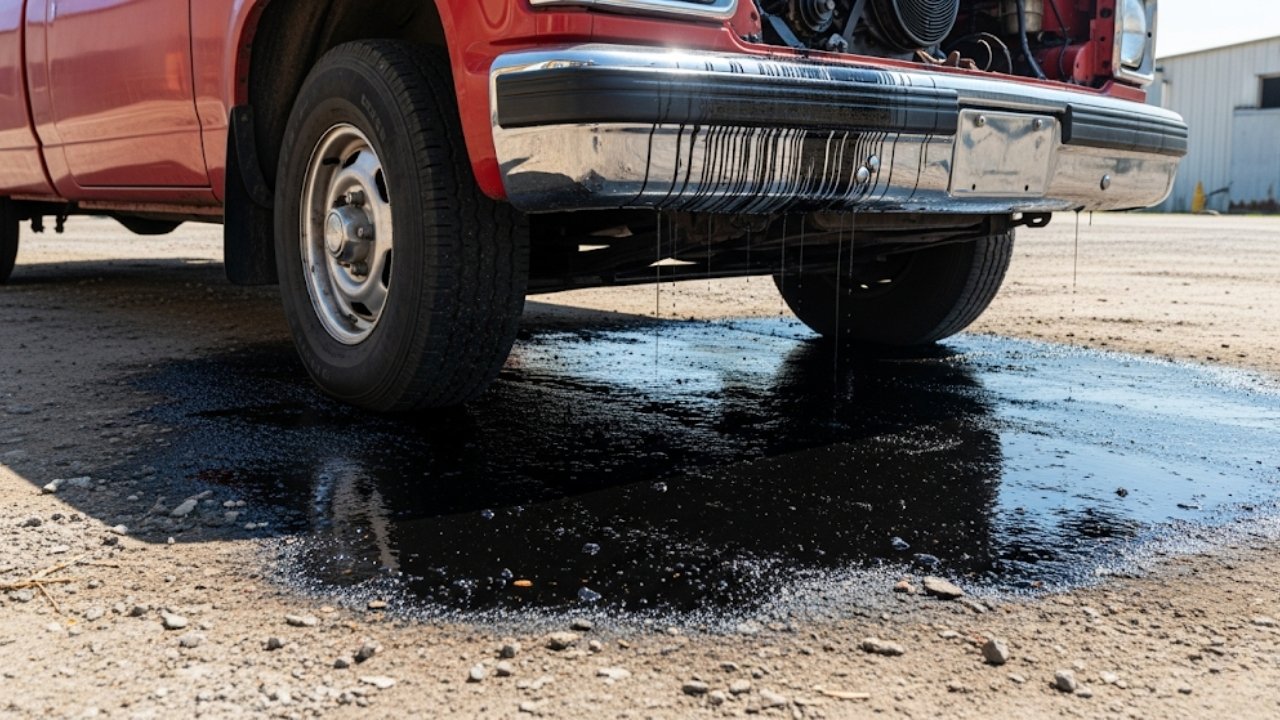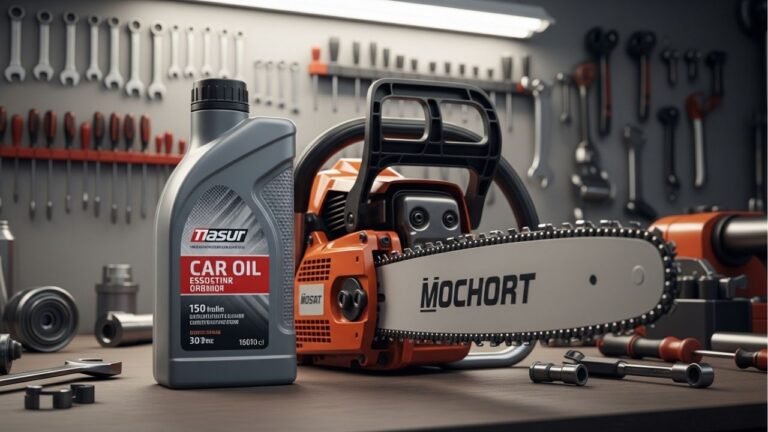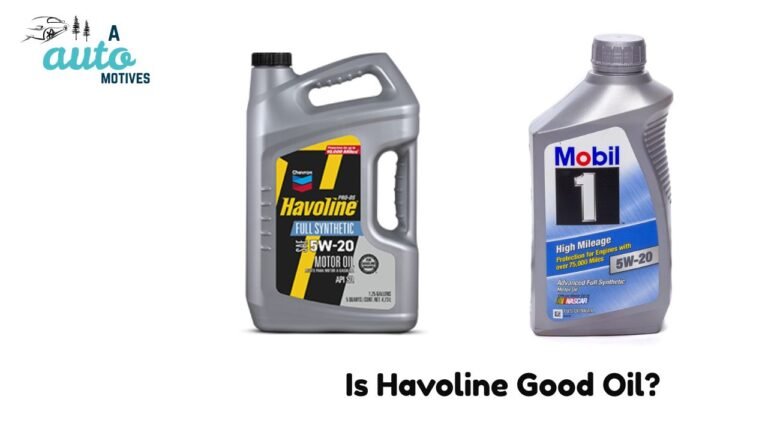All My Oil Leaked Out of My Car: What Now?

There’s a moment no car owner ever wants to experience—pulling out of your driveway and seeing a dark puddle where your vehicle used to be. You crouch down, heart racing, and check beneath your car. The panic hits: “All my oil leaked out of my car!” It sounds dramatic, but it’s a situation that can feel downright terrifying.
I’ve been there. And if you’re reading this, chances are you have too. But take a deep breath—this guide will walk you through every angle of what happens, what to do, and how to make sure it never happens again.
You’ll learn:
-
What causes total oil leaks
-
Signs of low or no oil
-
Immediate actions to take
-
Damage risks
-
Repair and prevention tips
We’ll keep it simple, relatable, and packed with solid advice—like hearing from a knowledgeable friend who’s already been through it.
What Happens When All the Oil Leaks Out of a Car?

This isn’t something you can “wait and see” about.
Even a few seconds of running an engine without oil can cause:
-
Overheating
-
Warped parts
-
Bearing failure
-
Complete engine seizure
If you keep driving with zero oil, you might as well be pouring sand into the engine. It’ll grind itself to death—fast. That’s why you should never ignore an oil warning light or a fresh puddle under your car.
Why Did All the Oil Leak Out of My Car?
Let’s break down the likely culprits. The oil didn’t just vanish—it went somewhere. Here are the most common causes when all the oil leaked out of your car:
1. Damaged Oil Pan
-
The oil pan sits underneath the engine and holds most of your oil.
-
Hitting a curb, rock, or speed bump too hard can crack or punch a hole in it.
2. Loose or Missing Oil Drain Plug
-
After an oil change, the drain plug may not be tightened properly.
-
Worse, it could fall out entirely if the threads are stripped.
3. Blown Gasket or Seal
-
Valve cover gaskets, oil filter gaskets, and rear main seals can fail with age.
-
A gasket failure can lead to a slow leak or sudden oil loss.
4. Faulty Oil Filter
-
Cheap filters or improper installation can cause oil to leak under pressure.
-
Some filters even explode off under high RPM if installed wrong.
5. Catastrophic Engine Damage
-
A connecting rod or piston may punch a hole in the block.
-
This is rare but deadly. Usually linked to engine failure from old oil or abuse.
Here’s a quick table for reference:
| Cause | Symptoms | Urgency |
|---|---|---|
| Cracked oil pan | Puddle under car, metal scraping | Emergency |
| Loose drain plug | Dripping oil, recent oil change | High |
| Gasket failure | Burning smell, smoking engine | Medium–High |
| Oil filter issue | Sudden oil pressure drop | High |
| Engine hole (block) | Loud noise, stalling, no oil left | Critical (Tow it) |
How Do You Know If All the Oil Leaked Out?
You don’t need to be a mechanic to spot the signs. In fact, your car might already be trying to tell you.
Look for these clear warnings:
-
Oil pressure warning light (or red oil can icon)
-
Loud knocking or clanking sounds
-
Burning smell from engine bay
-
Big dark puddle under the car
-
Smoke from under the hood
-
Overheating temp gauge
If you experience even one of these, especially after thinking “all my oil leaked out of my car”, do not drive further. Shut off the engine immediately and check your oil level.
Here’s a quick tip: Use your dipstick. If it’s bone dry or barely coated, you’re out of oil. That’s a red flag—and a tow truck moment.
What To Do Immediately After Oil Leaks Out
Okay. So you’ve confirmed it. Your car’s dry. Now what?
Here’s your emergency action plan:
1. Do NOT Start the Car
Starting the engine with no oil can cause more damage than the actual leak. Even idling for 30 seconds can destroy bearings.
2. Call a Tow Truck
Unless you’re 100% sure you fixed the leak and refilled the oil properly, do not drive it. Have it towed to a trusted mechanic or garage.
3. Check for the Leak Source
If it’s safe to do so, peek underneath the car. Look for:
-
Dripping from the oil pan
-
Missing or loose drain plug
-
Wet spots near the oil filter
Snap a few photos—it helps when explaining the issue to a mechanic later.
4. Monitor the Oil Level
Even if you plan to refill it temporarily, remember: leaking oil doesn’t fix itself. You might just pour new oil into a broken system.
5. Document the Incident
Note what happened, how long the engine ran, and what you observed. This helps in diagnosing damage—and could be useful for warranty or insurance claims.
Can Driving Without Oil Destroy Your Engine?
In one word? Yes.
If all the oil leaked out of your car, the engine is no longer protected. Oil lubricates every major moving part inside. Without it, the friction builds up heat, and that heat warps, melts, and fuses components.
Here’s what can happen in minutes:
-
Pistons seize inside the cylinders
-
Bearings wear out and break
-
Crankshaft and camshaft get destroyed
-
Head gasket blows
-
Engine block cracks
If you keep going, you could be looking at a full engine replacement—easily $4,000 to $10,000, depending on your car.
That’s why it’s so important to act quickly. The moment you realize all your oil leaked out, shut it off. You might save the engine’s life (and your wallet).
Can You Fix It Yourself?
It depends. If you’re comfortable with basic car maintenance and the problem is simple—like a loose drain plug or oil filter—you might be able to do a temporary fix. But be cautious.
Here are DIY fixes that are safe if you’re confident:
-
Tighten a loose oil filter or drain plug
-
Replace a damaged oil filter
-
Refill oil after confirming the leak is stopped
But don’t try to patch a cracked oil pan with tape or glue. That’s not a long-term fix and could lead to worse damage.
If you’re unsure, always call a professional.
Why Did This Happen Suddenly?
You might be wondering: “Why would all my oil leak out suddenly? There were no signs!”
Sometimes, leaks sneak up quietly. A few common reasons:
-
Your oil was leaking slowly for weeks, and one trip pushed it over the edge.
-
You hit something without realizing it (speed bumps, debris, potholes).
-
A poor-quality oil filter or drain plug failed under pressure.
-
Your last oil change was poorly done.
Even something like overfilling the crankcase can blow out seals under pressure. Think of it like over-inflating a balloon—it’s bound to pop somewhere.
It’s not always your fault. But knowing what went wrong helps you prevent it next time.
Signs the Engine Is Already Damaged
You’ve cleaned up the mess. Refilled the oil. Maybe even stopped the leak.
But… is your engine already toast?
Look out for these early signs of damage after oil loss:
-
Knocking or ticking even after refilling oil
-
Excessive smoke from the exhaust
-
Loss of power or sluggish acceleration
-
Check Engine Light stays on
-
Stalling or hard starts
If any of these show up after the incident, have a mechanic inspect the engine ASAP. Catching damage early may save you from needing a full rebuild.
How to Prevent Oil Leaks in the Future
Once you’ve been through the panic of discovering that all the oil leaked out of your car, you probably never want to experience it again. The good news? Most oil leaks are preventable with regular attention and a bit of know-how.
Here’s what to do:
1. Get Regular Oil Changes
Always follow the manufacturer’s schedule—usually every 3,000 to 5,000 miles. This keeps oil clean and lets a pro inspect gaskets and filters during the process.
2. Double-Check After DIY Work
If you change your own oil, triple-check:
-
The drain plug is tight.
-
The filter is secure.
-
There’s no leftover debris or old gasket material.
3. Clean the Undercarriage Occasionally
A clean undercarriage helps you spot leaks early. Built-up grime can mask problems. You can do this during car washes or request it during servicing.
4. Use Quality Parts
Don’t skimp on filters, gaskets, or oil. Low-quality parts are prone to failure. Always use OEM (Original Equipment Manufacturer) or trusted aftermarket brands.
5. Get Annual Inspections
Even if your car seems fine, a yearly mechanic check-up can catch small leaks before they become disasters.
Long-Term Engine Health Tips
After surviving an oil leak scare, it’s smart to step up your engine care game. Consider this your oil-leak recovery plan—like physical therapy for your car.
Routine Checks You Can Do at Home:
-
Check the dipstick weekly. It takes 30 seconds and can save thousands.
-
Glance under the car before driving. Spotting a new drip early helps.
-
Listen for new sounds. Knocks, ticks, or hums are warning bells.
-
Watch for smoke or odd smells. Burnt oil smell = red flag.
Engine Additives (Optional But Helpful)
Some people use oil stabilizers or leak stoppers as temporary fixes. These can slow small leaks in old engines. But don’t rely on them as a permanent solution.
Remember: prevention is protection. A little attention now saves you from major heartbreak later.
Bullet Point Checklist: What to Do If Your Oil Leaks Out
Here’s a quick checklist to print, save, or memorize:
-
Do NOT start the engine
-
Pull over and turn off the car
-
Check the dipstick immediately
-
Take photos of the leak area
-
Call a tow truck or mobile mechanic
-
Inspect for loose or missing parts (only if safe)
-
Refill oil only if the leak is stopped
-
Get a professional inspection
-
Remember what led up to the incident
-
Book regular oil changes in the future
FAQs About Oil Leaks and Engine Safety
1. Can I drive my car if it leaks a little oil?
A slow drip might not be dangerous short-term, but any leak should be fixed. Even small leaks can get worse. And they’re bad for the environment, too.
2. How much does it cost to fix an oil leak?
It depends on the source.
-
Oil pan gasket: $150–$400
-
Rear main seal: $500–$1,500
-
Full engine rebuild: $4,000+
Catching the problem early is key to keeping costs down.
3. Can synthetic oil cause leaks?
Not directly. But switching to synthetic oil in older engines with worn seals can reveal existing leaks because synthetic oil is thinner and flows more freely.
4. Is it safe to drive short distances with no oil?
No. Even driving one mile with no oil can cause catastrophic engine damage. Always stop immediately if you suspect oil loss.
5. How do I know if my mechanic forgot to tighten the drain plug?
If you just had an oil change and oil leaks out fast, that’s a top suspect. Call them immediately and ask if you should bring it in (or have it towed).
6. Why is my oil light flashing but I still have oil?
The oil pressure sensor may be failing, or you could have a clogged oil pump or filter. Either way, treat it seriously. Get it checked ASAP.
7. Can oil leak while driving without me noticing?
Yes. Highway speeds push oil out faster. By the time you see the warning light, the leak may already be severe.
8. What should I do if oil leaks onto my driveway?
Clean it quickly with cat litter, baking soda, or commercial degreaser. Then find the leak source before driving again.
Final Thoughts: A Personal Story
I’ll never forget the day all the oil leaked out of my car on a country road at dusk. I heard a faint clunk, then the oil light flickered on. I thought, Maybe I can make it home. I barely got a mile before the engine locked up—like someone slammed the brakes on my life.
The tow truck ride home was silent. I kept wondering, Could I have caught it sooner? I could’ve. And I want you to avoid that feeling.
Now, I check my oil weekly. I know the sounds of my engine like the back of my hand. And I never ignore warning lights.
Cars are like relationships. Ignore the little signs, and one day you’ll find yourself stranded and wondering what went wrong. But with regular care, you’ll keep things running smoothly for years to come.






